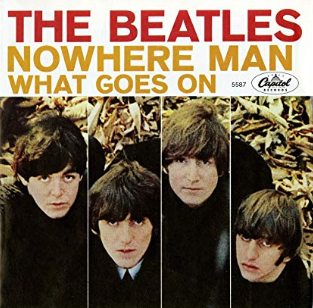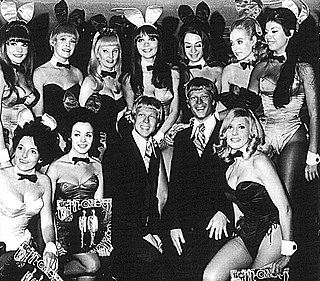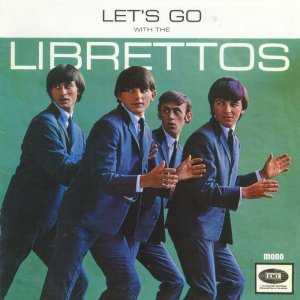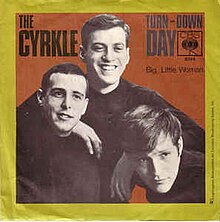
The Four Seasons is an American vocal quartet formed in 1960 in Newark, New Jersey. Since 1970, they have also been known at times as Frankie Valli and the Four Seasons. The band evolved out of a previous band called The Four Lovers, with Frankie Valli as the lead singer, Bob Gaudio on keyboards and tenor vocals, Tommy DeVito on lead guitar and baritone vocals, and Nick Massi on bass guitar and bass vocals. On nearly all of their 1960s hits, they were credited as The 4 Seasons. The band had two distinct lineups that achieved widespread success: the original featuring Valli, Gaudio, DeVito, and Massi that recorded hits throughout the 1960s, and a 1970s quintet consisting of Valli, Lee Shapiro, Gerry Polci, Don Ciccone, and John Paiva, with Gaudio and Long providing studio support.

Vee-Jay Records is an American record label founded in the 1950s, located in Chicago and specializing in blues, jazz, rhythm and blues and rock and roll.

Dino, Desi & Billy were an American singing trio that existed between 1964 and 1969. The group featured Dean "Dino" Martin, Desi Arnaz Jr., and their friend Billy Hinsche. A reconstituted version of the group performed between 1998 and 2010.

"From Me to You" is a song by the English rock band the Beatles that was released in April 1963 as their third single. It was written by John Lennon and Paul McCartney. The song was the Beatles' first number 1 hit on what became the official UK singles chart but the second, after "Please Please Me", on most of the other singles charts published in the UK at the time. "From Me to You" failed to make an impact in the United States at the time of its initial release. Instead, a 1963 cover version released by Del Shannon resulted in the song's becoming the first Lennon–McCartney track to enter the US pop charts. The Beatles' original was re-released in the US in January 1964 as the B-side to "Please Please Me", and reached number 41.

Introducing... The Beatles is the first studio album released by the English rock band the Beatles in the United States. Originally scheduled for a July 1963 release, the LP came out on 10 January 1964, on Vee-Jay Records, ten days before Capitol's Meet the Beatles! The latter album, however, entered the U.S. album chart one week before the former. Consequently, when Meet The Beatles! peaked at No. 1 for eleven consecutive weeks, Introducing...The Beatles stalled at No. 2 where it remained for nine consecutive weeks. It was the subject of much legal wrangling, but ultimately, Vee-Jay was permitted to sell the album until late 1964, by which time it had sold more than 1.3 million copies. On 24 July 2014 the album was certified gold and platinum by the RIAA.

"Nowhere Man" is a song by the English rock band the Beatles. It was released in December 1965 on their album Rubber Soul, except in the United States and Canada, where it was first issued as a single A-side in February 1966 before appearing on the album Yesterday and Today. The song was written by John Lennon and credited to the Lennon–McCartney partnership. In the U.S., the single peaked at number 3 on the Billboard Hot 100 and number 1 on the chart compiled by Record World magazine, as it did the RPM 100 chart in Canada and in Australia. The song was also released as a single in some countries where it had been included on Rubber Soul, including Australia, where it topped the singles chart.

"Please Please Me" is a song released by the English rock band the Beatles. It was their second single in the United Kingdom, and their first in the United States. It is also the title track of their first LP, which was recorded to capitalise on the success of the single. It is a John Lennon composition, although its ultimate form was significantly influenced by producer George Martin.

The Cyrkle was an American rock band active in the early and mid-1960s. The group charted two Top 40 hits, "Red Rubber Ball" and "Turn-Down Day".

"Que Sera, Sera " is a song written by the team of Jay Livingston and Ray Evans that was first published in 1955. Doris Day introduced it in the Alfred Hitchcock film The Man Who Knew Too Much (1956), singing it as a cue to their onscreen kidnapped son. The three verses of the song progress through the life of the narrator—from childhood, through young adulthood and falling in love, to parenthood—and each asks "What will I be?" or "What lies ahead?" The chorus repeats the answer: "What will be, will be."

"Help!" is a song by the English rock band the Beatles that served as the title song for the 1965 film and the band's accompanying soundtrack album. It was released as a single in July 1965, and was number one for three weeks in the United States and the United Kingdom. Credited to Lennon–McCartney, "Help!" was written by John Lennon with some assistance from Paul McCartney. During an interview with Playboy in 1980, Lennon recounted: "The whole Beatles thing was just beyond comprehension. I was subconsciously crying out for help".

"Red Rubber Ball" is a pop song written by Bruce Woodley of The Seekers and Paul Simon of Simon & Garfunkel, recorded by The Cyrkle, whose version reached No. 2 on the US Billboard Hot 100, and in South Africa and New Zealand. In Canada, the song reached No. 1.

Norman John Rowe is an Australian singer and songwriter. He rose to national prominence in the mid-1960s as a pop star and teen idol, backed by The Playboys. His 1965 double A-side "Que Sera Sera"/"Shakin' All Over" was one of the most successful Australian singles of the decade.

Souvenir of Their Visit to America is an EP of music by English rock band the Beatles. Released on 23 March 1964, it is the first of three Beatles EPs released in the United States and the only one released by Vee-Jay Records. The EP features four songs that had previously been released by Vee-Jay on their Introducing... The Beatles album. This EP did not chart.

"Take Good Care of My Baby" is a song written by Carole King and Gerry Goffin. The song was made famous by Bobby Vee, when it was released in 1961.
The Beatles experienced huge popularity on the British record charts in early 1963, but record companies in the United States did not immediately follow up with releases of their own, and the Beatles' commercial success in the US continued to be hampered by other obstacles, including issues with royalties and public derision toward the "Beatle haircut".

Twinn Connexion was the singing duo of identical twin brothers Jerry and Jay Hopkins. They were signed with Decca Records and released a self-titled album in 1968 with songs by Jerry Keller and David Blume. Their musical style consisted of pop harmonies influenced by the soft rock and folk rock styles that were popular during the late 1960s. Jay Hopkins died on September 6, 2001, and Jerry Hopkins died on October 1, 2022.

April Elizabeth Dove Potts, known professionally as April Byron, was an Australian pop singer and songwriter. She was the first female artist to collaborate with the Bee Gees after their formation as a band, on the 1966 single "He's a Thief" / "A Long Time Ago".

The Librettos was a New Zealand pop/R&B group, active from 1960 to 1966. They were one of New Zealand's most popular bands in 1964-65, and after relocating to Sydney they gained recognition in Australia for their polished live performances and their 1966 version of the Paul Revere & The Raiders song "Kicks". Several members of the group went on to other notable bands of the 1960s and 1970s - bassist Brian Peacock co-founded the highly regarded Anglo-Australian "progressive pop" band Procession, Rod Stone joined popular Australian '60s soul group The Groove, and drummer Craig Collinge later played with Manfred Mann Chapter Three and UK 1970s "proto-punk" band Third World War.

Red Rubber Ball is the debut album by The Cyrkle and was released on June 30, 1966 through Columbia Records CS 9344 (stereo) and CL 2544 (Mono). It reached #47 on the Billboard Top LPs chart.
















